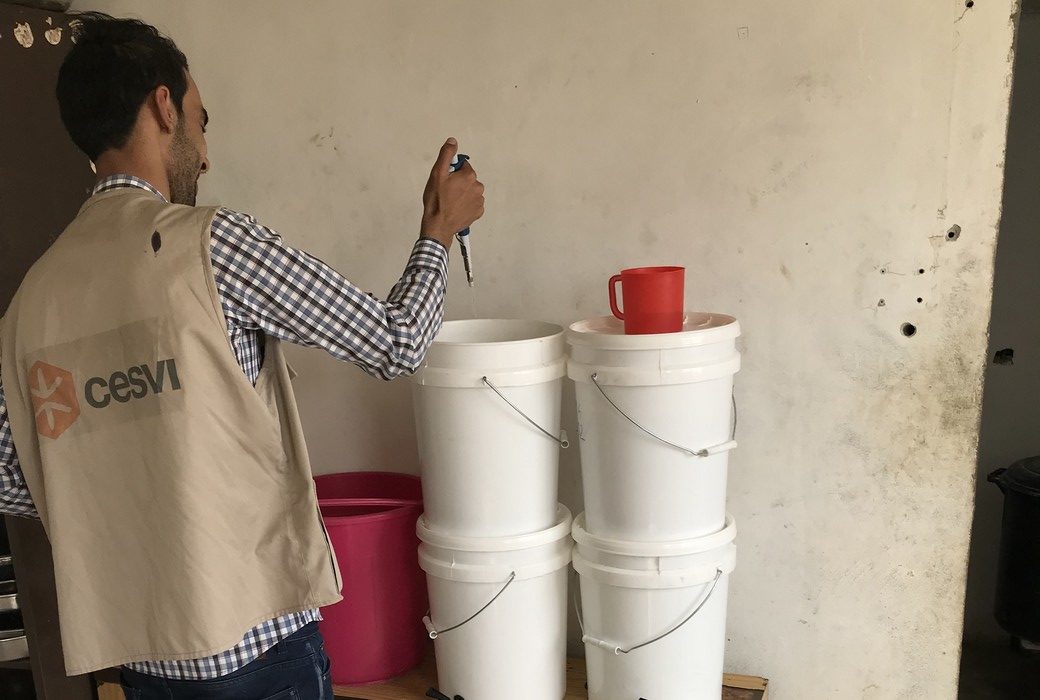In the Occupied Palestinian Territories (OPT), a permit regime for WASH infrastructure limits on water abstraction. The political situation and institutional framework have curtailed the authorities’ ability to deal with the challenges of an increase in population of more than 50% since 1995. Average water consumption is considerably below the optimum of the World Health Organisation and basic water services are an important staying factor in communities at risk of displacement.
While an estimated 150,000 people in Area C are disconnected or receive inadequate service, 35,000 face water shortage alongside a high cost of trucked water, requiring assistance in summer. Rainwater collected as surface run-off is frequently used and stored in underground cisterns. The quality of water is poor, leading to high risk of infectious diseases.
Cesvi has operated in Massafer Yatta area (Hebron Governorate, Southern West Bank) for some years, especially in communities unconnected to the water system. Thanks to a fruitful collaboration with University of Applied Sciences and Arts Northwestern Switzerland (FHNW), since 2016 Cesvi has focused its efforts on the development of a research methodology to evaluate household water filters for use in an emergency context.
In August 2016, 11 communities – with a total of about 1,000 people – were therefore pre-selected for the study. In September 2017, the identification and assessment process of the 150 households from these communities started.
Data on attitudes and preferences related to water use, sanitation facilities and hygiene practices of each families were collected during the initial stage.
To date, Cesvi has finalized the baseline data collection with all 150 households and distributed 130 out of 150 filters to the families so far. After installation, staff has trained people on how to use filters properly and has done integrity tests in order to check the product’s functioning.
The families will keep the filters with them for four months, and after that they will receive another filter type to have a comparison of two randomly chosen products. During the six monitoring visits the staff measures water quality, flow, observe use, ask about experiences in structured and open ended interviews, and answer any questions the users may have.
Read the full article on the project blog managed by Elrha.
The “Household Water Filters Evaluation” project is supported by Elrha’s Humanitarian Innovation Fund programme, a grant making facility supporting organisations and individuals to identify, nurture and share innovative and scalable solutions to the most pressing challenges facing effective humanitarian assistance.
The HIF is funded by aid from the UK Government and the Swedish International Development Agency (SIDA).
Visit www.elrha.org for more information about Elrha’s work to improve humanitarian outcomes through research, innovation and partnership.
Photo: Integrity test done by Cesvi staff
